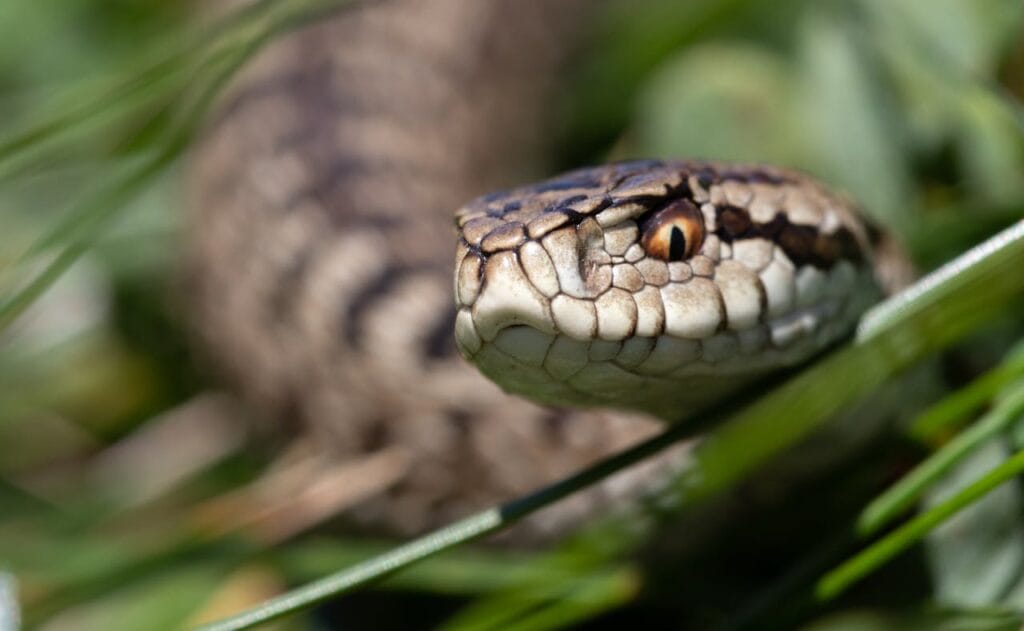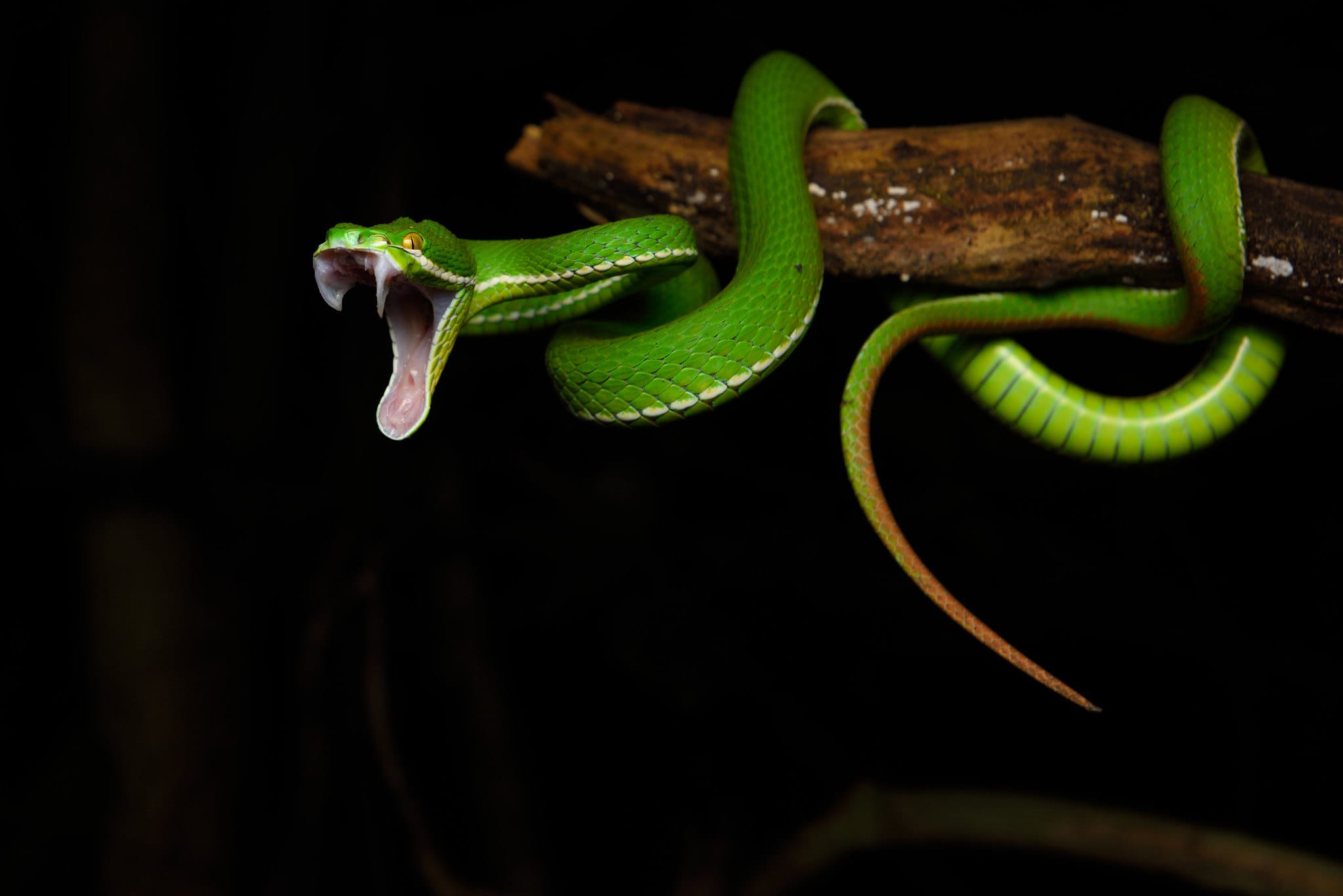There is a belief that if a person is bitten by a snake, the poison must be sucked out of the wound as soon as possible - such a procedure will supposedly stop its spread throughout the body. We figured out whether such a recommendation is effective from a scientific point of view.
Sucking out the venom in case of a snakebite is popular trope in cinema and literature. It is played out in the TV series "Hearts of three" And "Kitchen", films "Snake flight" And "Mean Girls", the novel by Neil Gaiman "Stardust", a story by Arthur Conan Doyle"Vampire from Sussex"and many other works. However, recommendations to do the same can be found on websites some medical institutions, and also Rospotrebnadzor And EMERCOM of Russia. Doctors give similar advice in Media, and Internet users are discussing V blogs, is it worth using this first aid method?
By data According to WHO, about 5 million people are bitten by snakes every year, with up to 140,000 fatalities. Poisonous about 15% snakes, and the degree of danger can be assessed by bite marks: Poisonous individuals usually leave one or two large punctures from their fangs, while non-venomous ones usually leave multiple small wounds. Snakes are able to control the amount of venom they inject into their prey, so some bites may not pose a serious threat even if the snake is venomous: for example, if it has decided that a person is too big prey and is better off saving the venom for someone it can eat later.
Snake venoms vary in its impact. For example, cytotoxins cause swelling and tissue damage at the site of the bite, myotoxins destroy muscles, and neurotoxins cause paralysis or other damage to the nervous system. The negative consequences of a bite can be prevented by introducing an antidote - they can be polyspecific (that is, suitable for the venoms of many snakes living in a particular region) and monospecific (only against the venom of snakes of a certain type). This is why many doctors ask the victim what the snake looked like - this speeds up the selection of treatment and increases the chances of a successful outcome. However, trying to catch a reptile and then show it to doctors is not recommended - it may bite again, and a double dose of poison and another affected limb will not improve the situation.

If a person is bitten by a snake, experts recommend Call an ambulance immediately, and before it arrives, remove all jewelry and tight clothing before swelling begins, wash the bite site with soap, apply a clean bandage, sit or lie down in a comfortable position, remain calm and, if possible, not move. It is strictly not recommended to apply a tourniquet in an attempt to prevent the poison from spreading - this risks causing the tissue near the bite site to suffer much more severely. You should also not take caffeine and alcohol - an increased heart rate will speed up the spread of poison throughout the body. Until doctors arrive, it is better to refrain from taking painkillers, since some of them can increase bleeding. Also experts authoritative medical organizations converge in opinion, that in no case should you try to remove the poison yourself (including sucking it out of the wound) not worth it.
First of all, it's simply ineffective. In 2004, American scientists conducted experiment: volunteers were injected subcutaneously with a liquid that simulated poison, and after three minutes they tried to remove it with a special pump. It turned out that the device sucked out only the “bloody liquid” and in 15 minutes of operation reduced the concentration of “poison” in the body by 2%. It is unlikely that you will be able to achieve greater success with your mouth than with a pump. In this case, snake venom spreads throughout the victim’s body very quickly. This is due evolutionarily: Snakes primarily use venom for hunting, which means it must kill or at least immobilize the prey within minutes or even seconds so that it does not have time to escape.
Secondly, if some amount of poison can still be extracted from the wound, it will end up in the mouth, where there may also be open wounds. This can worsen the situation, because if a person tries to suck the poison out of himself, the toxins will have another entry point into the bloodstream. If someone else tries to help the person who was bitten, then instead of one victim, doctors will have to treat two. Also, interaction with the blood of a stranger can lead to the transmission of infections. Moreover, in a person's mouth lives about 700 types of microbes - some of them, if they get into an open wound at the site of a bite, can cause infection and even more serious consequences.
Thus, sucking snake venom from a wound after a bite is a spectacular technique in works of popular culture, but an absolutely ineffective first aid method. Using it can only make the situation worse.
Cover photo: Tontan Travel via Flickr
Read on the topic:
- WebMD. Snakebites: What You Need to Know
- Discover Wildlife. 10 deadliest snakes in the world
- Is it true that boa constrictors strangle their victims?
- Is it true that when an iguana bites, it poisons its prey with a weak poison and then simply follows it until it dies?
If you find a spelling or grammatical error, please let us know by highlighting the error text and clicking Ctrl+Enter.






